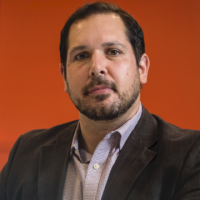
Half full or half empty? Photo (cc) 2014 by bradhoc
Among the projects that almost made it into “What Works in Community News” was the Chicago Sun-Times and Chicago Public Media, which merged two years ago. It struck Ellen Clegg and me as a leading example of how public media could step up to preserve local and regional news, especially after the city’s leading paper, the Chicago Tribune, fell into the hands of the hedge fund Alden Global Capital.
Now the combined enterprise is laying people off. Dave McKinney of WBEZ, which is part of Chicago Public Media, reports that about 15% of 62 union content creators at the radio station are losing their jobs, and that four positions on the business side at the Sun-Times would be cut. In all, 14 jobs will be eliminated.
McKinney notes acidly:
The job cuts coincide with the debut of a $6.4 million, state-of-the-art studio at WBEZ’s Navy Pier office and follows a double-digit-percentage pay increase for Chicago Public Media’s top executive. Additionally, other high-level executives departed the not-for-profit news organization in December.
The announcement follows cuts and threats of cuts at a number of public media outlets around the country, including WAMU in Washington, Colorado Public Radio and, in Boston, WBUR and GBH, neither of which has announced layoffs but have pointedly said cuts may be coming.





 This is a mistake that comes up over and over, and today’s offender is the Boston Globe. The headline on an
This is a mistake that comes up over and over, and today’s offender is the Boston Globe. The headline on an